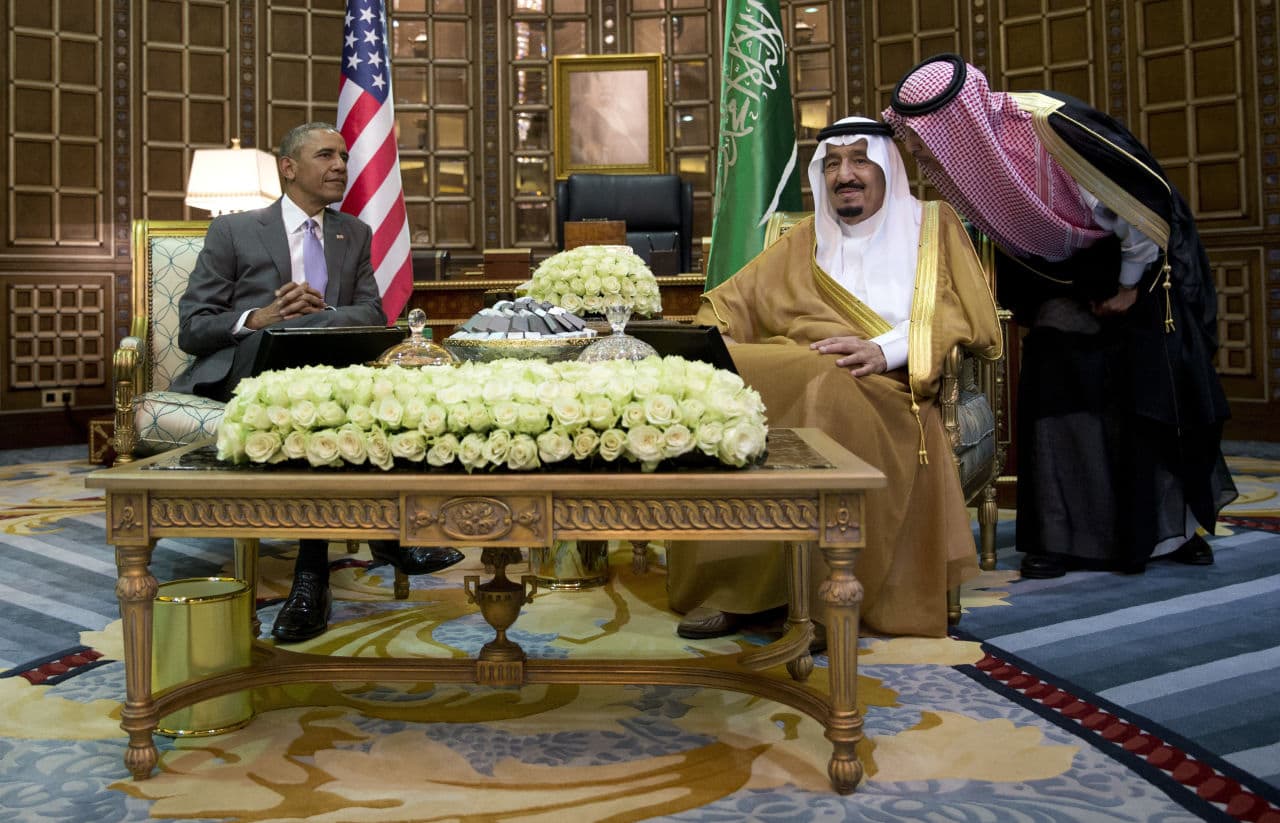Advertisement
Will The Special Saudi-U.S. Relationship Survive?
ResumeThe president’s visit to Saudi Arabia. The two countries’ special relationship is being challenged on everything from ISIS to oil.

Before he was ever elected President, U.S. Senator Barack Obama referred to Saudis as “our so-called allies.” As president, Obama’s relationship with Saudi Arabia has stayed pretty much in that key. This week, he’s been in Saudi Arabia at a time when the “special relationship” with the US is super-strained. On ISIS, Iran, Syria, Yemen, oil, US fracking, the future of the Middle East and incendiary old suspicions over the Saudis and 9/11. This hour On Point: Obama in the Saudi kingdom.
-Tom Ashbrook
Guests
Angus McDowall, senior correspondent in Saudi Arabia for Reuters.
Jon Alterman, senior vice president and director of the Middle East Program at the Center for Strategic and International Studies.
Bernard Haykel, professor Near Eastern Studies and director of the Institute for Transregional Study of the Contemporary Middle East, North Africa and Central Asia at Princeton University. Co-editor of Saudi Arabia in Transition.
From Tom's Reading List
The Ever More ‘Complicated’ U.S. Relationship With Saudi Arabia — "The most pressing issue at hand is much older: It’s the September 11 attacks. As Obama prepares to travel, Congress is considering a bill that would open the door for Saudi interests to be held liable in court for the attacks. And as The New York Times reported over the weekend, the Saudi government is threatening to sell off nearly a trillion dollars in assets held in the U.S. if the bill passes. The families of 9/11 victims have attempted to sue Saudi Arabia for playing a role in those attacks, but under a 1976 law, foreign governments are immune from many types of lawsuits in American courts. (The Atlantic)
The Long Divorce — "Although the upcoming visit is being touted as an effort in alliance-building, it will just as likely highlight how far Washington and Riyadh have drifted apart in the past eight years. For Obama, the key issue in the Middle East is the fight against the Islamic State: He wants to be able to continue to operate with the cover of a broad Islamic coalition, of which Saudi Arabia is a prominent member. For the House of Saud, the issue is Iran. For them, last year’s nuclear deal does not block Iran’s nascent nuclear status – instead, it confirms it. Worse than that, Washington sees Iran as a potential ally in the fight against the Islamic State." (Foreign Policy)
Special Report: Yemen's guerrilla war tests military ambitions of big-spending Saudis — Six years ago, Saudi and American officials agreed on a record $60 billion arms deal. The United States would sell scores of F-15 fighters, Apache attack helicopters and other advanced weaponry to the oil-rich kingdom. The arms, both sides hoped, would fortify the Saudis against their aggressive arch-rival in the region, Iran. But as President Barack Obama makes his final visit to Riyadh this week, Saudi Arabia's military capabilities remain a work in progress – and the gap in perceptions between Washington and Riyadh has widened dramatically. (Reuters)
This program aired on April 21, 2016.